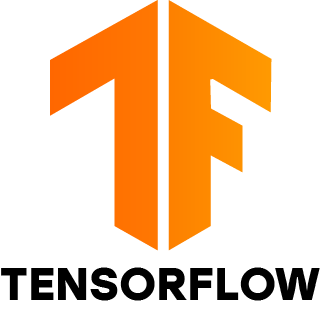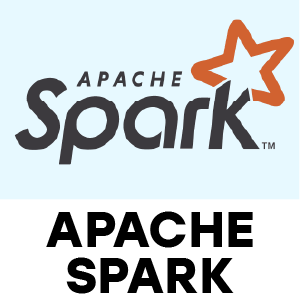A Data Scientist is a researcher who needs to prepare large volumes of large data for analysis, develop and synthesize complicated quantitative algorithms and provide impressive visualizations of the results for senior management. Data science Course in Delhi improves business decisions by speeding up the whole process and improving the direction. An individual who loves to play numbers and figures must be a data scientist. The skill of a data scientist which is most sought after is a strong analytical attitude mixed with solid industrial understanding.
They must be able to communicate the technical concepts to non-technical people in more communication than average Provides data science courses to cover the whole lifecycle principles for data acquisition, data extraction, data cleaning, data exploration, data transformation, feature engineering, data integration, data mining, prediction model building, and customer solution visualized and deployed. Competency and tools covering statistical analysis, text mining, model of regression, testing for hypothesis, predictive analytics, machine learning, deep learning, natural language processing, predictive modeling, predictive modeling, R studio, Tableau, Spark, Hadoop, languages like R programming, python are cover existent programming languages.
Additional Info
Intro of Data Science?
A data scientist analyzes data by combining domain knowledge, programming skills, and mathematical and statistical skills. To produce artificial intelligence (AI), data scientists consult machine learning algorithms on numbers, text, images, videos, audio, and more in order to automate tasks that normally require human intelligence. The analysis and business users of these systems can translate these insights into tangible business value. Organizations today are collecting and creating large volumes of data that can be analyzed and turned into actionable insights through data science. By preparing data for analysis, processing it, performing advanced analysis, and presenting it, data science can identify patterns and assist stakeholders in drawing informed conclusions.
To prepare data for specific types of processing, it may be necessary to clean, aggregate, and manipulate it. It is necessary to develop and use algorithms, analytics, and artificial intelligence models for analysis. It uses software to discover patterns within data to make business predictions based on these patterns. Through scientifically designed tests and experiments, it needs to be validated that these predictions are accurate. Results should be visualized in such a way that makes it possible for anyone to pick up on patterns and understand trends using data visualization tools.
Why is Data Science Important?
Magic is created by data. For industries to make well-informed decisions, they require data. Raw data is converted into meaningful insights through data science. Data science is therefore needed by industries. Data Scientists are wizards who know how to work with data to create magic. Using whatever data he comes across, a skilled Data Scientist will be able to discover meaningful information. As a result, the company is heading in the right direction. Data-driven decisions are a crucial aspect of the company, and he is an expert in this area. An expert in Statistics and Computer Science, the Data Scientist acts as an expert in a number of fields. Business problems are solved with his analytical abilities.
Learn How to Become a Data Scientist :
Assigning patterns to data is the task of the Data Scientist. Data Scientists are expert at problem-solving. The purpose of his work is to identify redundant samples and gain insight from them. To extract information from data, data scientists use a range of tools.
It is the role of a Data Scientist to manage, store, and analyze structured and unstructured forms of data. Its responsibility is primarily to analyze and manage data, but it also depends on the industry in which the company works. For a Data Scientist to do this, he or she needs to have industry-specific domain knowledge.
In the past, we had largely organized and modestly sized data, which were analyzed by simple BI tools. In contrast to traditionally organised data, most data today is unstructured or semistructured. Below is a data trend that suggests that more than 80% of the information will be unstructured.
Data is collected from several sources, including financial records, text files, multifunctional forms, sensors, and tools. There is an enormous quantity and diversity of data that cannot be processed by BI tools alone. As a result, we need ever more sophisticated analytical tools and algorithms to process, analyze, and develop insights. Data science is not just popular because of its popularity.
Here are a few ways that data science is used in different contexts. Based on current data like navigation history, acquisition history, age, and revenue, what is the best method to understand your clients' specific requirements? All of this happened without any uncertainty. Let's see how predictive analytics can be leveraged through data science.
Let's take the case of weather predictions. Models can be constructed by collecting and analyzing data from ships, planes, radars, and satellites. As well as anticipating weather, these models aid in preventing natural disasters. Your actions will be informed in advance, helping you to make the right decision.
Data Scientist Role and Responsibilities :
As part of their work, data scientists work closely with business stakeholders to determine how they can use data to achieve their goals. To extract the data the business needs, they develop algorithms and predictive models, analyze the data and share insights with peers. Data is generally gathered and analyzed as follows, even though every project is different :
- Ask the right questions before beginning the discovery process
- Acquire data
- Process and clean the data
- Integrate and store data
- Investigation of initial data and exploration of exploratory data
- Select at least one model and algorithm to use
- Utilize data science techniques, such as machine learning, modelling, and artificial intelligence
- Measure and improve results
- Present final result to stakeholders
- Make adjustments based on feedback
- Repeat the process to solve a new problem
Advantages of Data Science :
The various benefits of Data Science are as follows:
1. It’s in Demand :
There is a greatest demand for data science Specialists. There are numerous opportunities available to job seekers. Linkedin predicts it will create 11.5 million jobs by 2020. It is the fastest growing job on the network. Because of this, Data Science is an extremely employable profession.
2. Abundance of Positions :
Data Scientists require a very specific skill-set. Few people possess all of these skills. In comparison with other IT sectors, Data Science is therefore less saturated.
The field of Data Science is therefore very diverse and has many opportunities. While Data Scientists are in high demand, there are not enough of them to meet that demand.
3. A Highly Paid Career :
In the field of data science, you can earn a lot of money. Approximately 116,100 dollars a year is the average salary for Data Scientists, according to Glassdoor. The lucrative nature of Data Science makes it a highly attractive career choice.
4. Data Science is Versatile :
Data Science has a wide range of applications. In the health-care, banking, and consultancy services industries, and in e-commerce, the technology is widely used. Data Science has many applications. Therefore, you will be able to work in a variety of fields.
5. Data Science Makes Data Better :
In order to analyze and process their data, companies require the skills of Data Scientists. Furthermore, they improve the quality of the data as well. Therefore, Data Science involves enriching data and enhancing it for the benefit of the organization.
6. Data Scientists are Highly Prestigious :
Businesses can make smarter business decisions thanks to Data Scientists. Clients benefit from the expertise of Data Scientists. Companies rely on their expertise to improve results. Data Scientists thus hold a key position within an organization.
7. No More Boring Tasks :
The use of data science in various industries has helped automate redundant tasks. Historical data is being used by companies to train machines to perform repetitive jobs. The arduous jobs previously undertaken by humans have been simplified.
8. Data Science Makes Products Smarter :
Utilizing Data Science, industries are able to tailor better products for their customers thanks to Machine Learning. By analyzing users' past purchases, recommendation systems used by e-commerce websites provide personalized insights. As a result, computers can now understand human behavioral patterns and take data-driven decisions.
9. Data Science can Save Lives :
Data Science has contributed greatly to the improvement of the Healthcare sector. Machine learning has made early detection of tumors easier. In addition, many other industries in the health care sector use Data Science to help their clients.
10. Data Science Can Make You A Better Person :
In addition to providing you with a rewarding career, Data Science can also assist you in developing yourself personally. Having a problem-solving attitude will enable you to achieve success. Taking on a Data Science role allows you to combine the best of both worlds, as many Data Science roles bridge IT and Management.
Data scientist skills :
The top five skills for data scientists include a mix of hard and soft skills:
- Programming :
This is the "most fundamental of all data scientist skills." You can perform data analyses on large datasets using programming, as well as create your own tools by using the language.
- Quantitative analysis:
As a crucial part of analyzing large datasets, that quantitative analysis is an essential skill for running experimental analyses, scaling your data strategy, and implementing machine learning.
- Product intuition:
Quantitative analysis will be easier if you understand products. In addition to improving your debugging skills, it will also help you predict system behavior.
- Communication:
Strong communication skills are perhaps the most important soft skills across every industry. They will Support you to "leverage all of the previous skills set listed".
- Teamwork:
A successful data science career requires teamwork, as well as communication. It calls for selflessness, embracing feedback, and sharing knowledge with your team.
The Data Science job profiles include :
1. Data Scientist :
Several fields are covered by a data scientist. The data scientist might define the problem description and project objectives based on the business objectives. They employ artificial intelligence, train machines to uncover models and trends and make data-based predictions. An artificial intelligence, machine learning, statistics, and data engineering foundation is required.
2. Data Analyst :
It is often the role of the data analyst to collaborate with management and the company to identify project objectives. In this way, data can be gathered and explored in an appropriate manner. Analyze patterns and trends by converting data into patterns. Also, the team is shown the designs and the data based on which the products can be created.
In addition to excellent interpersonal skills, it requires expertise in programming, databases, data analysis, and tools for data visualization. Our main objective will be to master machine learning and cloud platforms such as Azure, IBM, and Google
3. Data Engineer :
Database administrators are traditionally hired and responsible for managing data in organizations. Their duties include maintaining the integrity and availability of the business' databases and ensuring data security. In addition to knowing how to use a classic relational database, disaster recovery and backup methods, and reporting tools, they must be proficient in classic relational databases.
Data engineers develop, maintain, and support scalable data pipelines, and they build APIs to access data repositories. Models of data have become more diversified in their types and expertise, as it relates to data formats and big data technology.
4. Enterprise Data Architect :
At the strategic level, data architects and data managers ensure the quality, accessibility, and security of enterprise data. Data architects in the company design and build pipelines, repositories, and data management facilities.
A database administrator creates and manages an organisation's database by defining technological layers, performance requirements, and database size. A data engineer and manager also collaborate to guarantee data security, data protection, and performance.
Certification course on data science :
It refers to a concept of "combining statistics with data analysis techniques" for "understanding and analyzing real events with data." The Data Science education is based on mathematics, statistics, information science, and computer science and incorporates techniques and ideas from multiple subjects, including machine learning, classification, cluster analysis, information mining, databases, and visualization. You can learn about the data science life cycle and analyze and view different data sets, as well as various machine learning algorithms like K-Means clustering and decision making in the Data Science certification course.
What are the goals of our online course in data sciences?
During the training program in data sciences, professionals will teach you how to become a Certified Data Scientist. Here are the courses in Data Science :
- Algorithms for machine learning and data science life cycle knowledge
- Knowledge of several tools and methods for data transformation
- A comprehensive understanding of data visualisation and optimisation techniques; the ability to perform text and sentiments analysis
- The exhibition of numerous industrial real-life projects in RStudio
- A wide array of projects in areas such as health, social media, aviation, and human resources
- Data science training by a SME to better understand industry standards and best practices







































